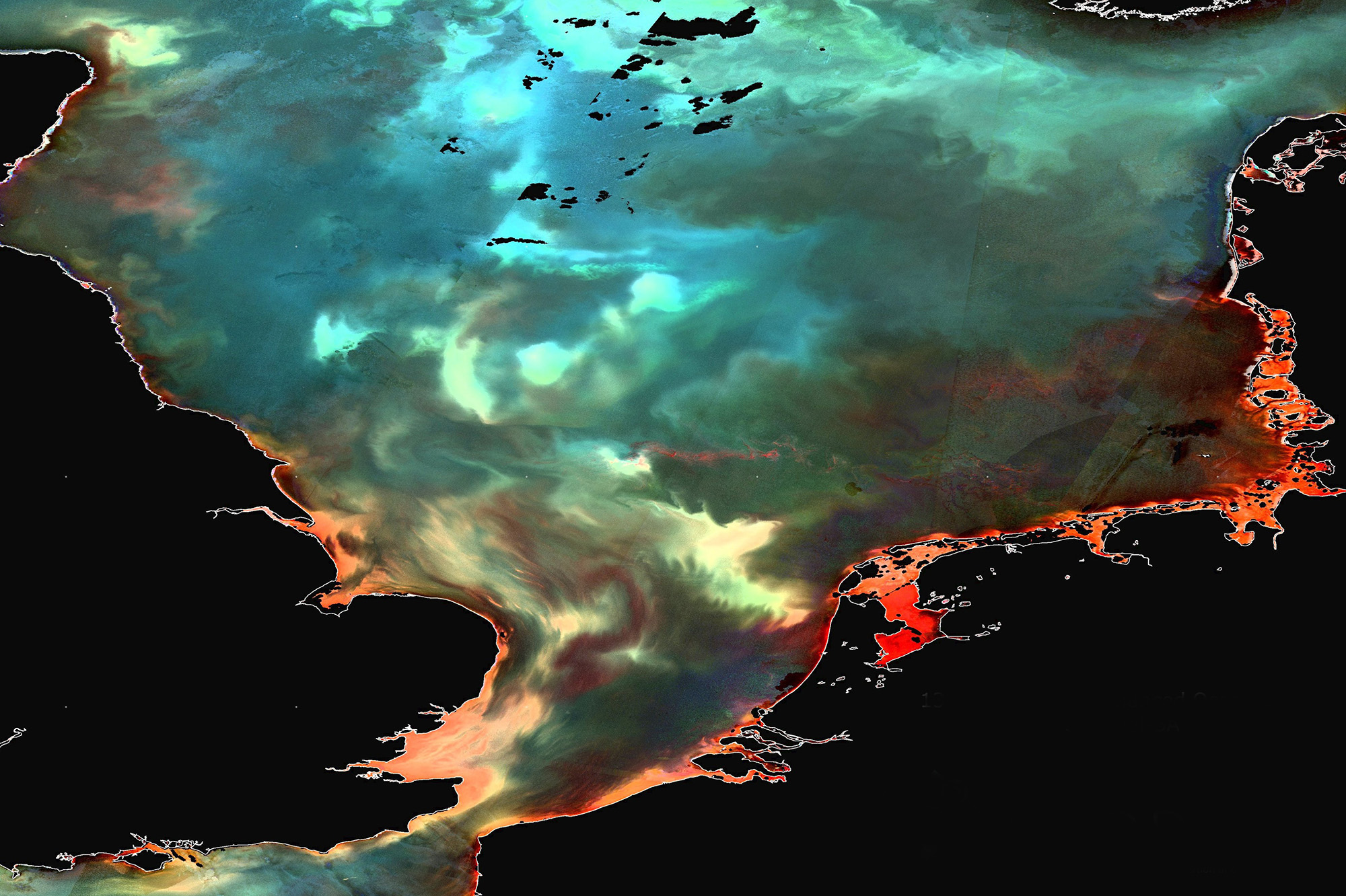Story
PML-hosted Earth observation service recommissioned following continued success
27 February 2024
NERC Earth Observation Data Analysis and Artificial-Intelligence Service (NEODAAS), a service hosted at Plymouth Marine Laboratory (PML), overseen by the National Centre for Earth Observation (NCEO) and funded by the Natural Environment Research Council (NERC), has been recommissioned for a further 7 years.
 In a £70 million investment into seven NERC facilities that host environmental analytical facilities, field equipment and expertise, NEODAAS’ importance to the environmental science community has once again been recognised.
In a £70 million investment into seven NERC facilities that host environmental analytical facilities, field equipment and expertise, NEODAAS’ importance to the environmental science community has once again been recognised.With this funding, it will be able to continue to provide expertise, support and training on Earth observation data processing and analysis, as well as provide support for researchers using Artificial Intelligence with Earth observation data, to meet the ever advancing needs of environmental scientists in the years to come.
Steve Groom, Head of the NEODAAS service and Head of Science for Earth Observation at PML, said:
“We are thrilled about the recommission for a further 7 years. The service is vital to support world-class environmental research undertaken across the UK. NEODAAS has a new name in 'NERC Earth Observation Data Analysis and Artificial-Intelligence Service', reflecting the growing importance of AI in Earth observation and building on the service that NEODAAS first established in 2021."
"Recommissioned NEODAAS has a wider range of services from “traditional” provision of Earth observation data, near real-time guidance of research cruises and support of airborne sensor data processing, with an increasing focus on code optimisation in Earth observation for carbon-saving towards net-zero, deployment of autonomous above water radiometers and guidance of autonomous surface or underwater vehicles”.
The investment into NERC’s Scientific Support and Facilities portfolio, which can be read in more detail here, will enable UK researchers to continue to access the pool of field and analytical equipment, which underpins the UK’s environmental science. This commissioning round of scientific support and facilities will continue until March 2031.
Professor Peter Liss, Interim Executive Chair of NERC, said:
“NERC is committed to fostering ambitious world-leading research in environmental sciences, including investing in the UK's national capability in environmental science analytical facilities, plus support and research equipment for fieldwork."
“This significant investment in NERC’s Scientific Support and Facilities portfolio will ensure that our facilities can continue to provide the expertise and support to continue to meet demand from the environmental science community over the next seven years”.
If you are a UK environmental scientist and would like more information about how Earth observation data can support your science then please visit www.neodaas.ac.uk.
Related information
NERC Earth Observation Data Analysis and Artificial-Intelligence Service (NEODAAS) website